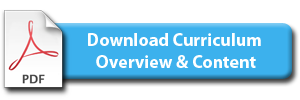National Curriculum
The Relationships and Sex Education curriculum follows the statutory guidance set out in the Dfe paper Relationships education, relationships and sex education (RSE) and health education. This curriculum is mandatory from September 2020.
The Citizenship curriculum follows the National Curriculum for Citizenship (2013)
The CEIAG (Careers Education, Information, Advice and Guidance) curriculum follows the Careers Strategy set out by the government in 2017. This strategy places the Gatsby Benchmarks at the heart of careers provision. In addition, we follow the guidance provided by the CDI (Careers Development Institute) as a way of ensuring we provide a stable careers programme from Years 7 to 13.
How we teach Personal Development and Citizenship
All students have one discreet fifty-minute lesson per week but Personal Development and Citizenship is a cross curricular subject with all curriculum areas contributing in a variety of ways which can be shown in the Spiritual, Moral, Social and Cultural webpage. There are two assemblies per week which have their own theme. These themes are taught across all Year groups but are made age appropriate, for example the sharing of indecent images. Enrichment days are also organized so that students gain a more hands on experience. This includes trips to the theater, museums, and places of worship. We also bring guest speakers into school so that students can experience more of the world at large for examples MP’s, Local Councilors and Entrepreneurs. In addition to the taught curriculum all students are encouraged to get involved in extracurricular activities. At Key Stage 3 we also have specific skills builder program. Students are encouraged to reflect on their experiences and to recognise how they are developing personally and socially, addressing the spiritual, social, moral and cultural and health issues that form an intrinsic part of growing up.
The Intent of Citizenship
The aim of Citizenship is to provide students with the knowledge, skills and understanding to become responsible and active citizens in a global world. We follow the National Curriculum for Citizenship 2012 as part of our broad and balanced curriculum. The national curriculum for citizenship aims to ensure that all pupils should be taught about:
- the development of the political system of democratic government in the United Kingdom, including the roles of citizens, Parliament and the monarch
- the operation of Parliament, including voting and elections, and the role of political parties
- the precious liberties enjoyed by the citizens of the United Kingdom
- the nature of rules and laws and the justice system, including the role of the police and the operation of courts and tribunals
- the roles played by public institutions and voluntary groups in society, and the ways in which citizens work together to improve their communities, including opportunities to participate in school-based activities
- the functions and uses of money, the importance and practice of budgeting, and managing risk
The Intent of Personal Development
- The aim of personal development is for students to become reflective and more resilient learners who are able to make to make informed decisions about all aspects of their lives, as they develop from children into young adults
- Students will also learn to respect the views, needs and rights of others, including people of different genders, ages and cultures to themselves
- Students have the opportunity to broaden, extend and challenge their knowledge, values and skills to prepare them for life in modern Britain, with the aim of making students productive citizens
- Within the Fundamental British Values aspects of the curriculum pupils are able to distinguish right from wrong and to respect the civil and criminal law of England as well as accepting responsibility for their behaviour, showing initiative, and understanding how they can contribute positively to the lives of those living and working in the locality of the school and to society more widely
- We recognise and firmly believe that the development of pupils, spiritually, morally, socially and culturally plays a significant part not only in their ability to learn and achieve but in their ability to relate fully to, and have the ability to, access the world they live in
- High standards of personal behaviour including a positive caring attitude towards other people, an understanding of their social and cultural traditions and an appreciation of the diversity and richness of other cultures are all critical skills and dispositions that we nurture, encourage and develop through this subject and the wider curriculum
- To develop and improve a child's health and emotional wellbeing

If you have any questions or queries relating to the Careers curriculum please email headofcareers@ecclesbourne.derbyshire.sch.uk for more information.